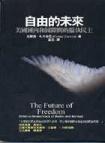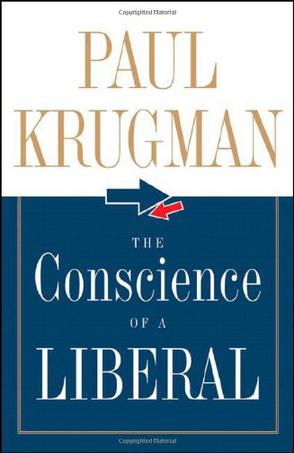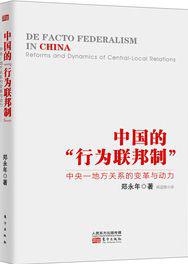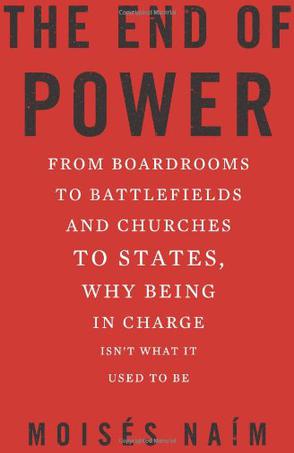-

自由的未來
民主也有其黑暗一面。可是我們卻很少去面對它。正視民主黑暗面立即就會惹來譏評,被認為與時代脫節。但這意指我們沒有真正的停下來認真反省。為了怕被貼上反民主的標籤,我們怯於了解生活各層面中日益民主化可能帶來的麻煩困擾。我們假定民主不可能製造任何問題。因此當我們看到政治,經濟,社會的頹唐不振之時,我們推卸責任,逃避問題,不去尋找真正的答案。更不願討論社會,經濟,政治生活核心的民主化大轉型之影響。 本書寫作目的在呼籲自我節制,恢復自由和民主之間的平衡。它並不反對民主,但它的確認為可能會有過分民主的情況。自由民主政治的精意在於建立起一套豐富、複雜又機巧的社會秩序,不受任何單一的理念主控一切。 本書特色: 在一片民主化的歌頌聲中,本書勇敢地提出了民主的黑暗面,促使吾人看清自已面臨的民主化挑戰,從而追求更完善的民主制度。在以自由民主為絕對價值的論述中,提出多元論點,強調民主的成功更在於自我節制。 對台灣和大陸不同程度的民主發展具有啟發性,促使大家進一步思考民主和自由的關聯性及其真義。 -

第二次机遇
本书作者秉承一贯大开大阖的战略气度,剖析了冷战后从老布什、克林顿到小布什三任总统15年来在美国对外战略的构想和实践中的经验得失,“就历史当下时刻提出了一些基本的战略性结论和根本性指导,以启发未来的美国总统们”。 -

The Conscience of a Liberal
What has gone wrong with America? With The Conscience of a Liberal, best-selling author Paul Krugman points the way to a new New Deal. America emerged from Franklin Roosevelt's New Deal with strong democratic values and broadly shared prosperity. But for the past thirty years American politics has been dominated by a conservative movement determined to undermine the New Deal's achievements - a movement whose founding manifesto was Barry Goldwater's The Conscience of a Conservative. That movement has been highly successful in turning the clock back: both the inequality of today's America and the corruption of its political life hark back to the age of the robber barons. Now the tide may be turning - and in The Conscience of a Liberal Paul Krugman, the world's most widely read economist and one of its most influential political commentators, charts the way to reform. Krugman ranges over a century of history, from the political economy of the Gilded Age - which seems all too familiar these days - to the calamities of the Bush years, which he argues were inevitable once movement conservatives gained full control of the U.S. government. He shows that neither the middle-class America the baby boomers grew up in nor the increasingly oligarchic nation we have become over the past generation evolved naturally: both were created, to a large extent, by government policies guided by organized political movements. He explains how defenders of inequality have exploited cultural and racial divisions to their advantage, while reformers have found ways to bridge those divisions. And he argues that the time is ripe for another great era of reform. Last but not least, The Conscience of a Liberal outlines a program for change. It shows how universal health care can be the centerpiece of a new New Deal, just as Social Security was the core of the original. It explains what can be done to narrow the wealth and income gap. And it shows how a new political coalition can both support and be supported by reform, making our society not just more equal but more democratic. -

国家基础能力的基础
为什么发达国家在税收服从、社会经济监管、福利保障、政府统领、国族认同及至其他公共服务供给上领先发展中国家,国家认证能力的差异是常为人忽视的重要原因之一。无“知”无以“行”,认证为国家行动提供必要的知识基础,堪称“国家基础能力的基础”。权力不对称往往源于信息不对称,如果政府行动没有事实支撑,没有规范指引,它就无法准确界定绝大多数人的经济社会状况、需求和期待,也就不可能是一个负责任、及时回应的政府。我们实现理想政治目标的途径不是拒斥认证制度,而是使之适用于更广泛的政治领域,使之裨益于绝大多数中国人民的福祉。 -

中国的“行为联邦制”
《中国的"行为联邦制":中央-地方关系的变革与动力》是从行为方式的视角对中国的中央—地方关系进行概念化的首次尝试。尽管中国并没有一种联邦形式的政府体制,但作者认为,随着改革开放的深化,中国的中央—地方关系日益遵循联邦制的原则在运作。联邦制作为中国的一种运行机制被置于研究之中。作者将中国现存的政治体制定义为“行为联邦制”,并在书中对它的起源和动力做出详细的分析。这一体制主要由两个相互关联的因素驱动——政府间的放权化和全球化。当1980年代实施的经济放权导致“行为联邦制”的形成时,90年代兴起的全球化加速了这一过程并越来越施加影响,使之表现出制度化的趋势。 -

The End of Power
We know that power is shifting: From West to East and North to South, from presidential palaces to public squares, from once formidable corporate behemoths to nimble startups and, slowly but surely, from men to women. But power is not merely shifting and dispersing. It is also decaying. Those in power today are more constrained in what they can do with it and more at risk of losing it than ever before. In "The End of Power," award-winning columnist and former "Foreign Policy" editor Moises Naim illuminates the struggle between once-dominant megaplayers and the new micropowers challenging them in every field of human endeavor. Drawing on provocative, original research, Naim shows how the antiestablishment drive of micropowers can topple tyrants, dislodge monopolies, and open remarkable new opportunities, but it can also lead to chaos and paralysis. Naim deftly covers the seismic changes underway in business, religion, education, within families, and in all matters of war and peace. Examples abound in all walks of life: In 1977, eighty-nine countries were ruled by autocrats while today more than half the world's population lives in democracies. CEO's are more constrained and have shorter tenures than their predecessors. Modern tools of war, cheaper and more accessible, make it possible for groups like Hezbollah to afford their own drones. In the second half of 2010, the top ten hedge funds earned more than the world's largest six banks combined. Those in power retain it by erecting powerful barriers to keep challengers at bay. Today, insurgent forces dismantle those barriers more quickly and easily than ever, only to find that they themselves become vulnerable in the process. Accessible and captivating, Naim offers a revolutionary look at the inevitable end of power--and how it will change your world.